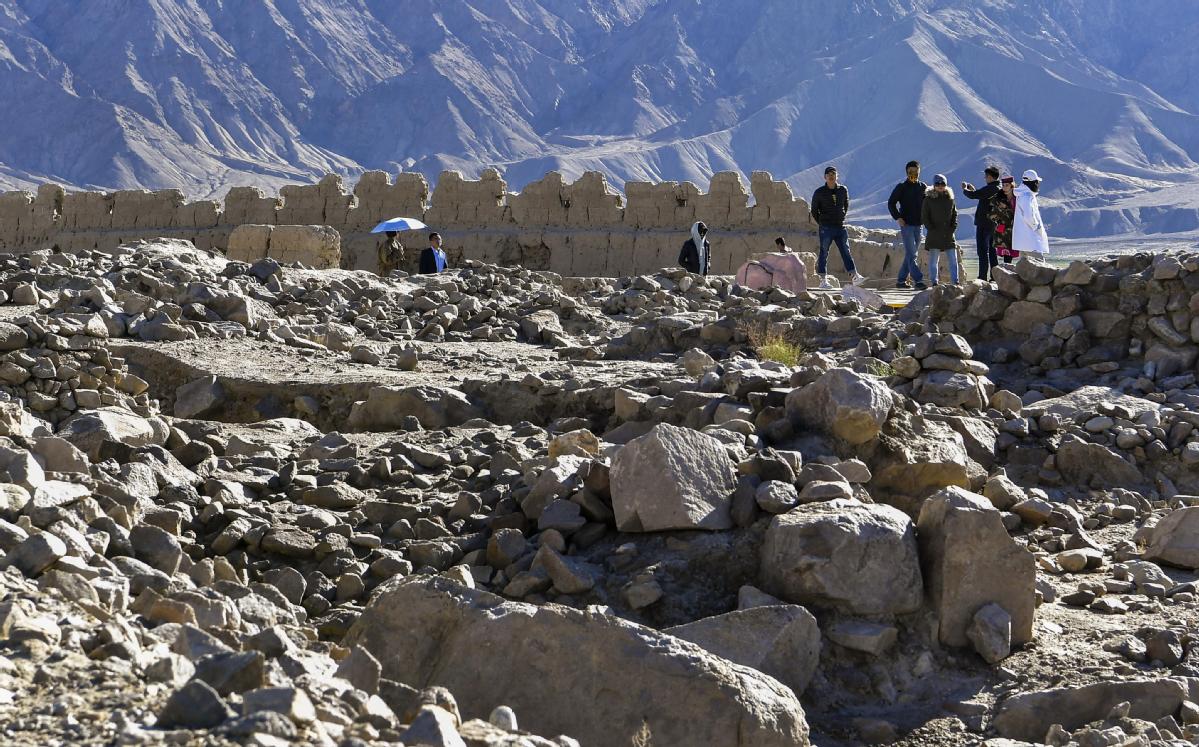Tajik ethnic people ready to hit new heights


Mountain trap
Ethnic Tajik people living in Tashikurgan are known as the "eagles of the high mountains", but it was never easy to move freely on the Pamir Plateau due to the rugged terrain. Tashikurgan, with an average altitude higher than 4,000 meters above sea level, is located in a cluster of mountains.
For local residents, the mountains posed a challenge to their daily life and work. There were no roads in many villages and the small trails could be easily destroyed by floods or mudslides.
In Rasekam, the remotest village in the county, residents lived in 12 gullies.
It would take about a month for Dawut Uxur, former Party chief of the village, to visit all the villagers by either horse, yak or camel. A trip to the county seat, more than 200 kilometers away, would take five days.
"Some aged villagers had never ventured beyond their village. It's just mountains everywhere," Dawut, 66, said.
The mountainous landscape also made it difficult to access electricity, tap water and communication signals. Dawut had never watched television until 2017.
However, the mountains failed to dampen China's determination to lift people of all ethnic groups out of poverty. Infrastructure development played a key role in making life easier for everyone.
After living in the mountains for 47 years, Dure Jarman, 49, a villager in Datong township, could finally stop worrying about earthquakes.
A 5.5 magnitude earthquake jolted Tashikurgan in 2017, damaging more than 3,000 houses made of earth and rock.
New houses were built with support from the central and local governments, and many residents were relocated to places more suitable for living and work.
Dure's new 80-square-meter house is located about 25 km away from the county seat and is equipped with a washing machine, a gas stove and a cooker. The house also has a yard and a shed.
For those who chose to stay in the mountains, infrastructure and living standards have also improved. The road between the county seat and Datong was improved in 2018, slashing the travel time by half to about four hours.
By the end of this month, a stable electricity supply will be provided to Datong via power lines which will replace energy generated by photovoltaic panels and a small hydropower station.
"It's no longer just mountains. We feel connected with the rest of the world," Dure said.
- Spring Festival travel expected to reach record high
- C919 begins Shanghai-HK regular flight
- Mount Qomolangma's foreign tourist number doubles in 2024
- Yuyuan Garden lights up with Year of the Snake lantern installations
- New dendrobium orchid species found in Sichuan
- People welcome the New Year across China





































